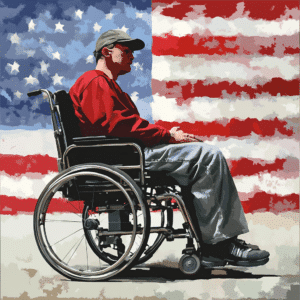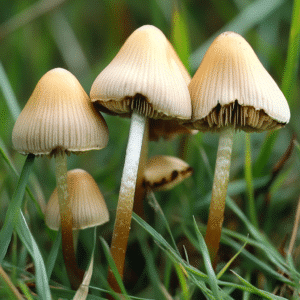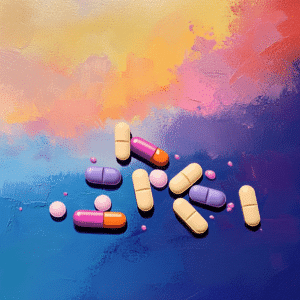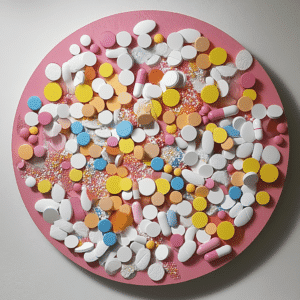Transitioning into healthy living post-addiction is no small order; it’s a journey filled with ups and downs. It’s about finding a new normal, filled with joy, stability, and purpose. The struggle is real for many who’ve faced addiction—especially for parents dealing with the heartache of children affected by substance use. While this road may feel daunting, there are paths to wellness that can lead to a vibrant and fulfilling life. Let’s explore seven tips to embrace your health post-addiction while allowing love and support to guide us all.

1. Top 7 Tips for Healthy Living Post-Addiction
1. Establish a Routine
Creating a steady daily routine can be a game-changer. Simple tasks—like morning meditation, prepping meals, or carving out time for exercise—bring structure where chaos once reigned. The SMART Recovery program, with its emphasis on routines in their 4-Point Program, highlights how vital it is to rebuild this sense of order, which provides stability and encourages emotional wellbeing.
2. Nutrition Matters
Your body and mind need proper fuel, especially when recovering from addiction. Prioritizing nutrition in addiction recovery is crucial. Programs like Clean Simple Eats provide meal plans focusing on wholesome ingredients, making sure you’re getting the vitamins and minerals necessary for a healthy restart. A balanced diet can restore mental sharpness and stabilize emotions, helping you feel your best.
3. Get Moving
It’s no secret that regular physical activity boost moods. So, lace up those sneakers! Whether it’s joining a local CrossFit class or taking leisurely walks in your neighborhood, getting active can greatly improve mental health and minimize cravings. Exercise And sobriety go hand in hand; research shows that physical movement kickstarts the production of endorphins, the body’s feel-good hormones.
4. Mindfulness and Meditation
Finding a moment to breathe can be transformative. Practicing mindfulness helps reduce stress, allowing you to embrace the present without dwelling on past troubles. Apps like Headspace and Calm support beginners by offering structured meditation sessions. Research also indicates that mindfulness techniques can be effective in preventing relapse; they provide coping tools to handle daily pressures.
5. Build a Support Network
Having a robust support system is essential in your recovery journey. Surrounding yourself with people who understand your experiences can provide comfort and encouragement. Organizations such as Al-Anon or Nar-Anon offer not only support meetings but also connections with those committed to a sober lifestyle, reinforcing the sense that you’re not alone in this struggle.
6. Continue Education on Addiction
Educating oneself about addiction can be empowering. A book like “Clean: Overcoming Addiction Without Treatment” by David Sheff provides fresh insights into the recovery process. The more knowledge you have, the better equipped you are to navigate triggers and understand addiction’s multifaceted nature.
7. Volunteer and Give Back
Sometimes, the best way to heal is by helping others. Volunteering can fill your heart with purpose, connecting you with your community while reaffirming your commitment to a healthy and vibrant life. Organizations like The National Council on Alcoholism and Drug Dependence welcome support and amplify your journey of recovery through positive contributions to society.

2. Understanding the Psychological Aspects of Healthy Living Post-Addiction
Embracing healthy living post-addiction isn’t solely about the physical; it’s also about mental and emotional well-being. Getting to know the psychological side of recovery allows you to sustain your progress.
The Role of Therapy in Recovery
Many find therapy vital in untangling their past while addressing struggles linked to addiction. Approaches like Cognitive Behavioral Therapy (CBT) help individuals develop coping strategies to handle life’s challenges. By setting a consistent therapy schedule, you’re establishing a critical accountability system assisting emotional balance along the road to recovery.
Addressing Co-Occurring Disorders
Sometimes addiction doesn’t walk alone; it can accompany anxiety, depression, or other co-occurring disorders. Comprehensive treatment plans must tackle both addiction and mental health. Programs like Dual Diagnosis cater to this need, while organizations like the National Alliance on Mental Illness (NAMI) provide invaluable resources to people facing these individual struggles.
Healing is a Journey
Understanding that recovery is a multi-layered process can provide solace. Recognizing the emotional hurdles allows parents and individuals alike to approach their situations with compassion and perspective. Investing time in self-care, therapy, and education creates a foundation for enduring change and healthier living.
3. Innovative Practices for Sustaining a Vibrant Life Post-Addiction
As we learn to navigate the path of healthy living post-addiction, exploring innovative practices can infuse your life with excitement and resilience.
Holistic Approaches
More and more, folks are turning to holistic practices. Yoga, acupuncture, and even aromatherapy can provide gentle avenues for stress relief and physical wellness. Local studios, like CorePower, offer classes that center on mindfulness and community, fostering a sense of belonging and shared experience that can aid recovery.
Technology as a Tool for Recovery
Technology can be a powerful ally in your recovery. Platforms like Sober Grid connect people in recovery, allowing you to share experiences and insights. Digital trackers help in monitoring progress, keeping you motivated with reminders of just how far you’ve come on this road toward healthy living post-addiction.
Finding Joy in Change
Change is a constant companion in recovery. Embracing new interests, hobbies, or fitness regimens can reinvigorate your life, making you feel alive again. Change might feel foreign, but it is often the vehicle to growth. Each small shift presents opportunities for self-discovery and joy, reinforcing your commitment to wellness.
4. Embracing Change: Committing to a Life of Wellness
In essence, choosing healthy living post-addiction is about embracing change and committing to growth. Remember, it’s a deeply personal journey, shaped by your experiences, challenges, and triumphs. Each day offers a chance to celebrate small victories, reinforcing your decision to lead a fulfilling life.
By applying these tips and leveraging resources, individuals can embark on a vibrant, purposeful journey toward recovery. Embrace the bumps along the way, and lean on love and community, because none of us has to walk this road alone. The journey toward a life rooted in wellness is not just possible; it’s within reach for anyone willing to take the first step.
By fostering resilience and staying open to change, healthy living post-addiction becomes not only a destination but a rewarding way of life. Take heart and breathe deeply—you’re moving forward, and a bright future awaits!
Healthy Living Post-Addiction: Fun Trivia and Interesting Facts
Nutrition: Fueling Recovery
When you’re on the road to recovery, healthy living post-addiction becomes vital. Did you know that certain vitamins are shown to significantly aid in recovery? Vitamins For recovery can help replenish what’s been lost and boost your mood, ensuring a smoother transition back to vibrant health. Eating a balanced diet not only enhances physical well-being but also supports mental clarity, making it easier to tackle life’s challenges—like maintaining a steady job or functioning in social settings. And speaking of challenges, it’s wise to give yourself a wide berth from negative influences as you build a healthier lifestyle.
Mindset Matters
Another fascinating fact: studies reveal that a positive mindset can have a profound impact on your recovery journey. Engaging with motivational speakers or attending events through a keynote speaker agency can inspire you to stay focused and uplift your spirit. Incorporating mindfulness practices into your daily routine, such as meditation or journaling, can be a great way to clear your mind and reinforce a healthy living post-addiction focus. This level of self-care allows you to inspect your thoughts regularly and reshape them as needed, steering clear of harmful behaviors.
Build Healthy Habits
Speaking of habits, forming new routines is essential. People who develop healthier lifestyles often find that they are happier and more fulfilled. A lovely reminder from the world of literature is that sometimes, a good book like My Happy Marriage Vol 1 Light Novel can provide the much-needed escape, helping to sustain a positive mindset. Also, don’t forget the importance of community—a support network is irreplaceable. Whether it’s friends or support groups, leaning on others fosters connection and accountability in your journey. And while you’re at it, take stock of your finances; knowing the mortgage rate right now can alleviate some stress and help you plan for a secure future.
Staying committed to healthy living post-addiction is all about taking proactive steps toward a life full of joy and wellness. Every decision counts, from the vitamins you choose to the communities you engage with, turning challenges into stepping stones for a vibrant life. So go ahead, embrace these fun facts and trivia—they’re your little reminders that you’re on the right path!





























